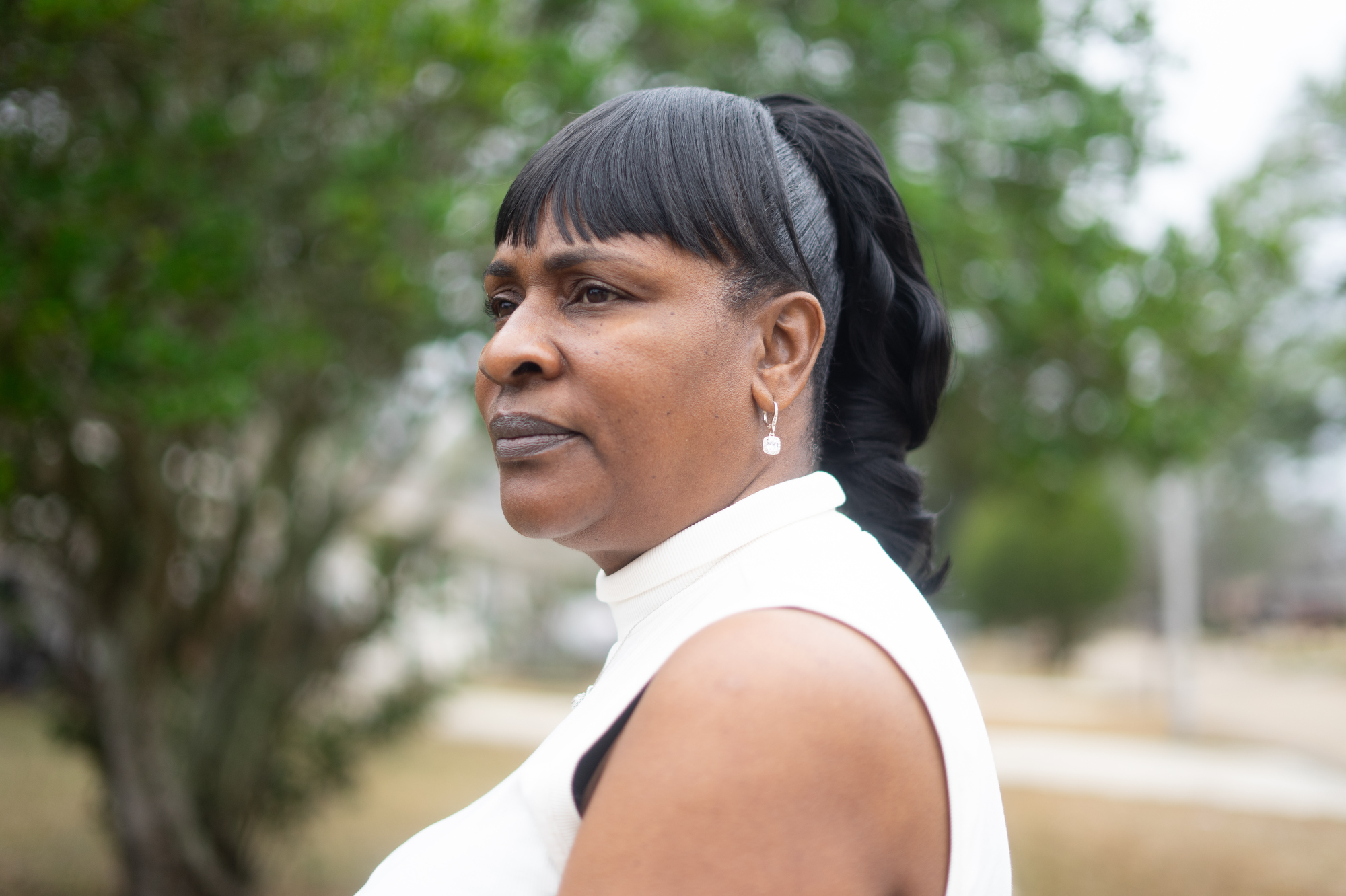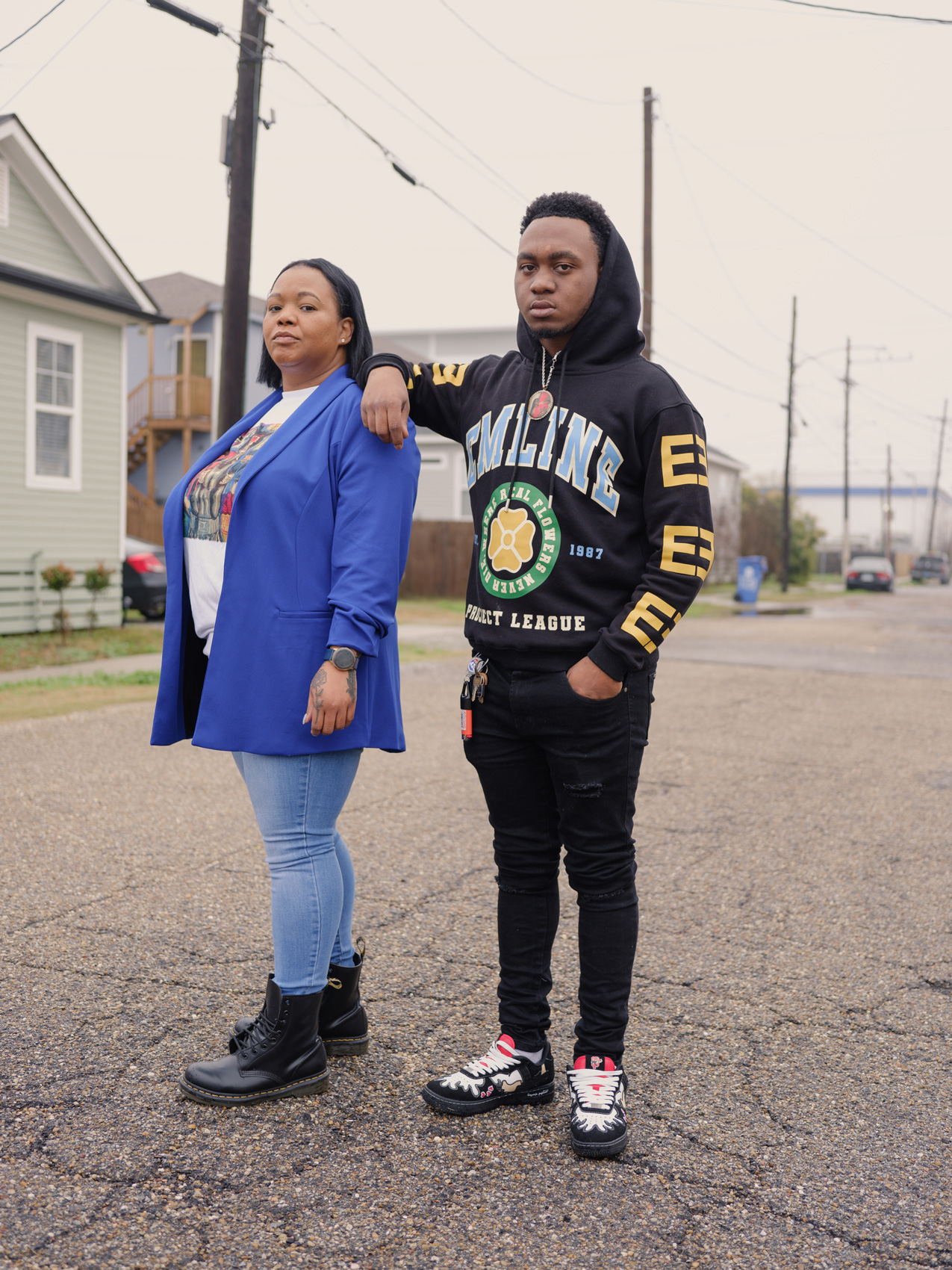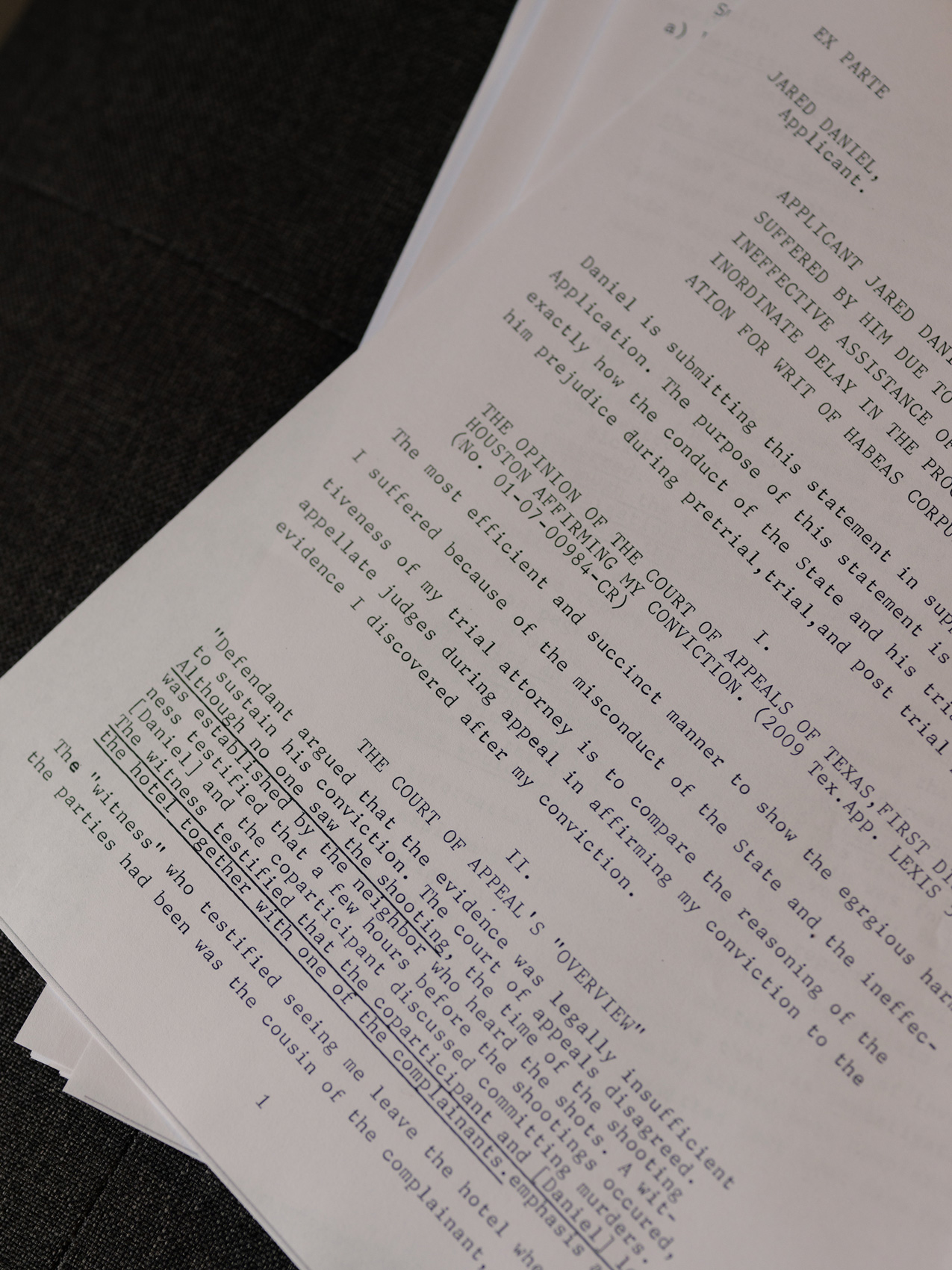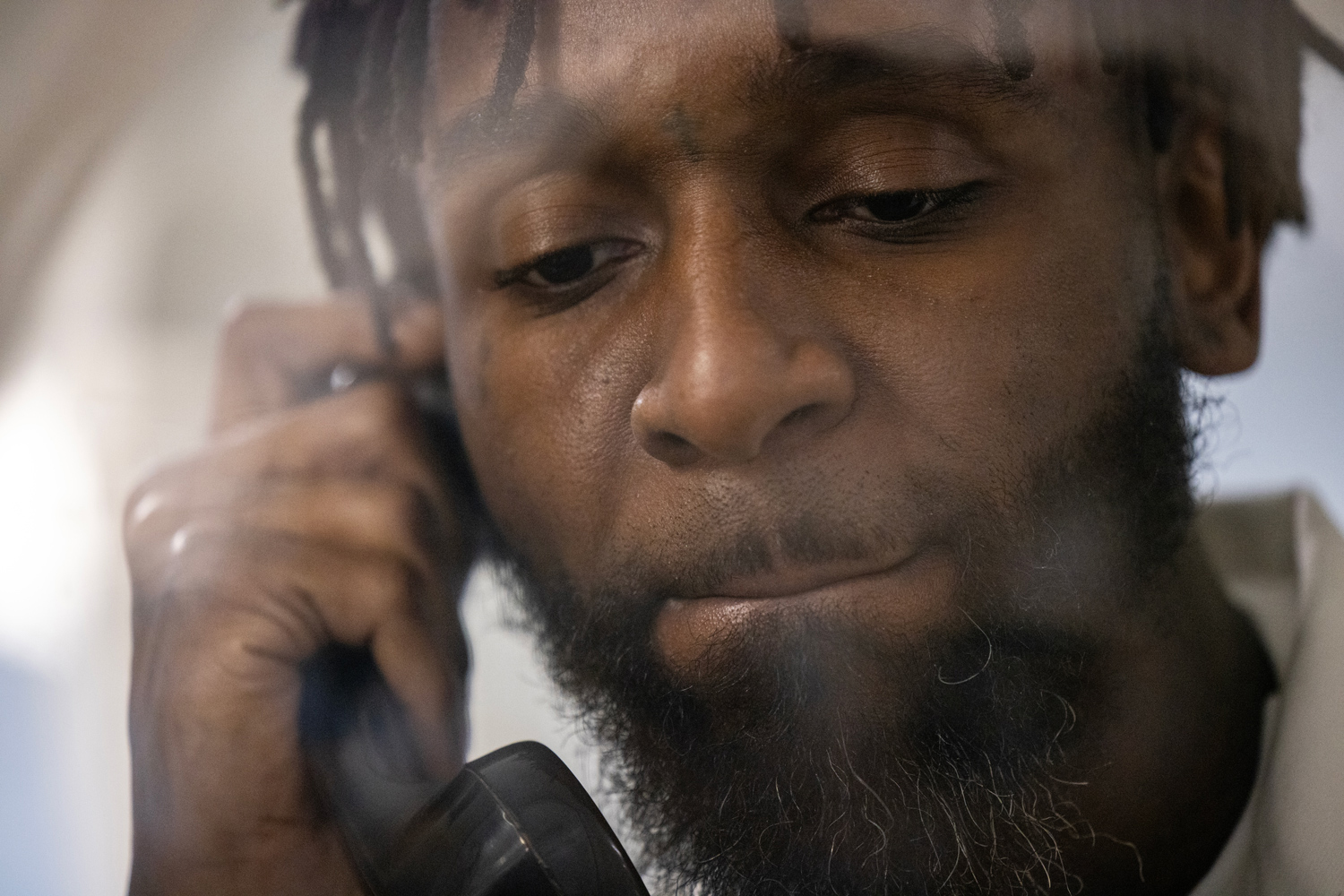|
Getting your Trinity Audio player ready...
|
When Jared Daniel filed his criminal appeal from his east Texas prison in 2011, he was absolutely certain that soon, he would be free.
Four years earlier, a Houston jury had convicted Daniel of a double homicide. But Daniel maintained his innocence, and in the years since, had plenty of time to mull over his frustrations with his trial.
He felt the evidence against him was largely circumstantial. His lawyer had advised against Daniel taking the stand, but never called witnesses to testify on his behalf. And Daniel unearthed details in police reports and the trial transcript that he said cast doubt on his guilt.
Daniel raised his concerns in a writ of habeas corpus, a special type of appeal that contests wrongful incarceration. He filed his appeal and eagerly waited for a response from the Harris County courts.
He would be forced to wait for 11 years.
Daniel is one of more than 100 defendants who saw their writs of habeas corpus gather dust in the Harris County courts for years and even decades, an inexplicable delay in the administration of justice that has left him fighting long odds in his quest to prove his innocence. His case illustrates the heavy toll of the systemic lapse, overwhelmingly borne by the affected defendants. Daniel’s arguments for relief hinge on evidence or testimony that may no longer be available – even as the parties responsible for the loss face no consequences for the oversight.
An affidavit filed in Daniel’s case by the Harris County District Clerk’s Office indicates that the trial court put a hold on his writ indefinitely to allow for an investigation into his claims. But that investigation never happened, and his appeal was apparently forgotten until 2022, when it was rediscovered during efforts to reduce a case backlog in the county courts.
“No question, it hurts him,” said Stephen Aslett, Daniel’s current lawyer, of the delay. “It’s a big systematic screw-up.”
The stakes for Daniel, 37, are high: liberty, or the certainty that he will die in a prison jumpsuit. Nevertheless, he holds out hope for relief. Despite repeatedly falling through the cracks of the criminal justice system, he remains a true believer in its virtues, convinced that he will prevail in the battle over the truth.
“I would like to see my case get overturned and my sentence get vacated,” he said. “I just want my freedom.”
Daniel has been waiting nearly two decades to tell his story. Finally, the courts are listening.
‘Nobody can explain it’
When a patrol officer with the Pasadena Police Department responded to a report of a dead body at an apartment on Dec. 21, 2005, he discovered a macabre scene. Slumped on the living room floor was Corey Brown, a 24-year-old Hurricane Katrina refugee from New Orleans. Shell casings littered the apartment, blood pooling around Brown’s head. His partner, Shelita Jones, was also deceased, shot to death in the bathroom.
Working off a tip from Brown’s cousins, investigators quickly focused their attention on two men alleged to have partied with Brown earlier on the night of the murders. The cousins accused those men, Jason McMaster and Jared Daniel, of bringing handguns to the party, and of pressing Brown to commit a robbery. Brown refused, which prosecutors later pointed to as a motive for his murder.
Police eventually arrested Daniel for the Brown and Jones murders in 2006. Then just 20 years old, Daniel’s criminal record in his hometown of New Orleans included nonviolent drug offenses and one count of illegally carrying weapons.
“That was my first time ever being charged with a serious crime,” he said. “So I really didn’t know what I was up against.”
Trial transcripts show the prosecution focused heavily on its case against McMaster, Daniel’s co-defendant, who could be linked to the murders through a variety of evidence. The case against Daniel, however, was more tenuous, resting almost exclusively on his DNA, which investigators matched to a blunt found in Brown’s apartment under the covers of a made bed. Prosecutors couldn’t explain how it got there.
“I don’t know,” the lead prosecutor said in his own closing statement. “I can’t explain it. Nobody can explain it… But it’s there.”
Daniel says his trial lawyer told him the prosecution’s case was weak, but the lawyer was wrong. The jury found Daniel and McMaster both guilty of capital murder, and on Nov. 9, 2007 sentenced them to life in prison without the possibility of parole.
Daniel was 21 years old.
‘I know I got a shot’
The verdict came as a shock to Daniel.
“I was devastated,” he said. “It was heartbreaking. I didn’t get the chance to live life.”
Daniel had not testified at trial on the advice of his lawyer, although he had an alibi, nor did any witnesses testify on his behalf. He had kept silent, trusting the process, but now he was desperate to tell his story. So, after an appellate court denied his direct appeal, he decided to file a writ of habeas corpus, enlisting the help of another inmate known for his mastery of appellate law. Daniel’s mother, Lisa Daniel, also got involved, obtaining police records and the trial transcript for the men to review.
“That’s my son,” she said in an interview. “I want to see him back out in the world. And that’s the least I could have done – I didn’t have money to get a lawyer.”

Instead, Daniel and the other inmate acted as lawyers themselves, poring over police reports, sifting through the trial transcript and evidence logs and crime scene photos. And, as they conducted their own investigation of the murders, Daniel’s frustration mounted.
He concluded that his trial lawyer Gerald Bourque hadn’t conducted an adequate pretrial investigation, leaving the jury without evidence that could have complicated the state’s narrative – evidence like Brown’s history of committing a violent robbery with McMaster, or Daniel’s own alibi that he was with his girlfriend at the time of the murders.
“I feel like (Bourque) fed me to the wolves,” Daniel said.
In a 2023 affidavit and an interview, Bourque denied Daniel’s claims, stating that Daniel had no alibi and chose not to testify of his own accord.
“I don’t answer to his questions,” Bourque told the Abdelraoufsinno. “If he wants to say something, (trial) was the time to say it.”
However, Bourque did admit in the affidavit that he was unaware of a stunning piece of evidence that Daniel and his fellow inmate uncovered during their investigation.
Buried in a police report was a note that investigators had matched shell casings from the Brown and Jones murders to evidence from a separate homicide committed in Houston just days prior. Later, Daniel would learn that the Houston Police Department had arrested and charged three men in that case, men with violent criminal histories in Texas and Louisiana.
Neither the defense nor the prosecution ever raised the connection at trial. In his writ, Daniel argued that the prosecution illegally withheld this evidence from the defense because it raised the possibility of alternative suspects.
The Harris County District Attorney’s Office has not yet filed a response to Daniel’s claim.
For Daniel, the arguments in his writ felt airtight.
“I know I got a shot, a chance,” he said. “And with the evidence I can prove that they hid, that should be all I need for my freedom.”
That’s why, when he filed his writ in January 2011 and heard nothing, he tried everything he could think of to move the appeal along. He filed numerous motions with the trial court in Harris County demanding action. He wrote to the highest criminal court in Texas, inquiring whether they had received the writ. He even had his family contact the courts for updates, over and over again – to no avail.
“Every time my family called, they always said it was pending,” Daniel said. “It was pending, it was pending, it was pending. And we was backlogged. We backlogged, we backlogged. And that was always the response.”
‘How did this happen?’
It was not until late 2022 that a response to Daniel’s writ finally came through. The Court of Criminal Appeals contacted Daniel in prison with the news that they had received the appeal at long last. Initially, Daniel was elated.
“I was like, ‘Wow, after all this time, they finally received it,’” he said.
The court did not inform Daniel, however, that he was one of dozens of defendants whose writs had been discovered languishing in Harris County. He had no idea that county officials had quietly decided to forward the writ to a higher court without first notifying defendants. He had no idea that his appeal had been simply forgotten until his wife, Tia Dixon, came across the Abdelraoufsinno’s prior coverage of the issue while conducting research online.
She alerted her husband immediately.
“I was shocked,” Dixon said. “It was just like, ‘Oh my God, how did this happen?’”
An affidavit filed by the Harris County District Clerk’s Office in response to Daniel’s writ provides a clue. An official explained that the clerk’s office did not forward the appeal to a higher court for a final decision because the district court judge had ordered them not to.


Bob Wicoff, chief of the Post-Conviction Writs Division of the Harris County public defender’s office, said the judge probably entered that order in good faith.
“The intent… was to keep the case from being sent up to the Court of Criminal Appeals for what was often a quick denial,” he wrote in a memo earlier this year, which he shared with the Abdelraoufsinno.
Though common practice in 2011, indefinite holds like the one placed on Daniel’s writ are now impossible, Wicoff added, pointing to a law implemented in 2014 that set deadlines for resolving such appeals. None of the lost writs identified by the Abdelraoufsinno’s investigation were filed after 2013.
Aslett, Daniel’s current lawyer, said that because Daniel had no legal counsel, responsibility for moving the writ ultimately fell with the district attorney’s office.
He pointed out that before Daniel’s writ went cold, a Harris County district court judge had ordered prosecutors to respond to Daniel’s claims.
“In my experience, it has long been the practice (for) judges… to wait for the parties to bring particular motions to the court’s attention for a ruling,” Aslett wrote in a legal filing last fall. “Incarcerated (defendants) like Mr. Daniel had no such ability; their motions were duly filed and then forgotten about. Only the State had the ability to approach the judges… and they didn’t.”
The Harris County District Attorney’s Office declined to comment on the specifics of Daniel’s case due to the pending appeal. Post-Conviction Writs Division chief Josh Reiss told the Landing last year that the courts bear at least some responsibility for the lapse.
“Any court has the right to order the parties before it to resolve legal issues that have been raised,” he said. Reiss was not in charge of the Post-Conviction Writs Division when Daniel filed his appeal.
Daniel believes prosecutors intentionally “sat on” his writ because they wanted to undermine his ability to fight for his innocence.
“The longer it sits, it’ll make it hard for the lawyers to investigate my claims,” he explained. “Because memories fade. People die. People retire. There’s so much that goes on as time passes… It’s like we’re set up for failure, you know?”
Evidence that could help prove his innocence, cellphone records from a potential alibi witness, is no longer available. Key witnesses for the prosecution, such as Brown’s cousins, have relocated and could take months to find, if they are found at all. Even then, they may not clearly remember the facts – as is the case for Daniel’s trial lawyer Bourque, who misstated the evidence against Daniel in a 2023 affidavit, apparently confusing his former client for McMaster.
“Everything that he answered was false,” Daniel said.
In an interview, Bourque declined to comment further on his affidavit.
Nothing about Daniel’s case is unique among defendants affected by the loss of the writs.
“You’re filing a writ, making a claim, then decades go by,” said Mandy Miller, a court-appointed lawyer for another defendant whose 2006 appeal was among those misplaced. That defendant’s argument also relied on testimony from a lawyer who could no longer remember the pertinent facts.
“Witnesses are gone, people pass away, files are lost,” Miller said in an interview last year. “Some of these could have been good potential claims but now there’s not going to be any factual basis to back them up.”
‘Terribly unfair’
The loss of writs like Daniel’s has not gone unnoticed by statewide authorities.
“The situation is extremely troubling, completely unacceptable, and terribly unfair to the applicants who have waited for years for any response regarding their applications,” wrote Judge Michelle Slaughter of the Texas Court of Criminal Appeals in response to one writ filed in 2013. Another judge, David Newell, called the lapse a “systemic failure.”
For all the blistering critiques, however, the Harris County courts have faced virtually no consequences for the loss of the writs. The district clerk’s office admitted to the loss publicly only in response to questions by the Abdelraoufsinno, and the list it provided of the writs at issue included many inaccurate entries.

That lack of accountability infuriates Daniel and his supporters. His wife, Tia Dixon, called for some sort of compensation for the defendants affected.
“Why is this just like, ‘Oh, well?’” she asked. “There should be some consequences for the court. Some of these people are really innocent.”
Daniel, meanwhile, pointed out that under Texas law, defendants have only five years post-conviction to file their writs because a longer delay would harm the state’s ability to defend its case – in precisely the same way the passage of time has harmed Daniel’s ability to make his.
“If we can’t file a writ after five years, how can I fight my case after 17 years?” he asked.
Daniel is now incarcerated in a sprawling prison complex in Beaumont. It’s a bleak place, but he keeps his spirits up.
“I exercise,” he said. “I read. I read a lot of self-help… to try to keep a strong mind.”
Naturally soft-spoken, with a gentle Big Easy drawl, he becomes animated when talking about two things: his family and his writ.
“I didn’t want to leave my kids,” he said. “Boys, without a father, they could be laid astray. And girls need a daddy for their strength.”
He speaks about his legal situation with unshakeable moral clarity. For Daniel, there is a direct line between his continued incarceration and the loss of the writs. How would his life have been different had his appeal been processed on time?
“I believe I’d be free,” he said.


